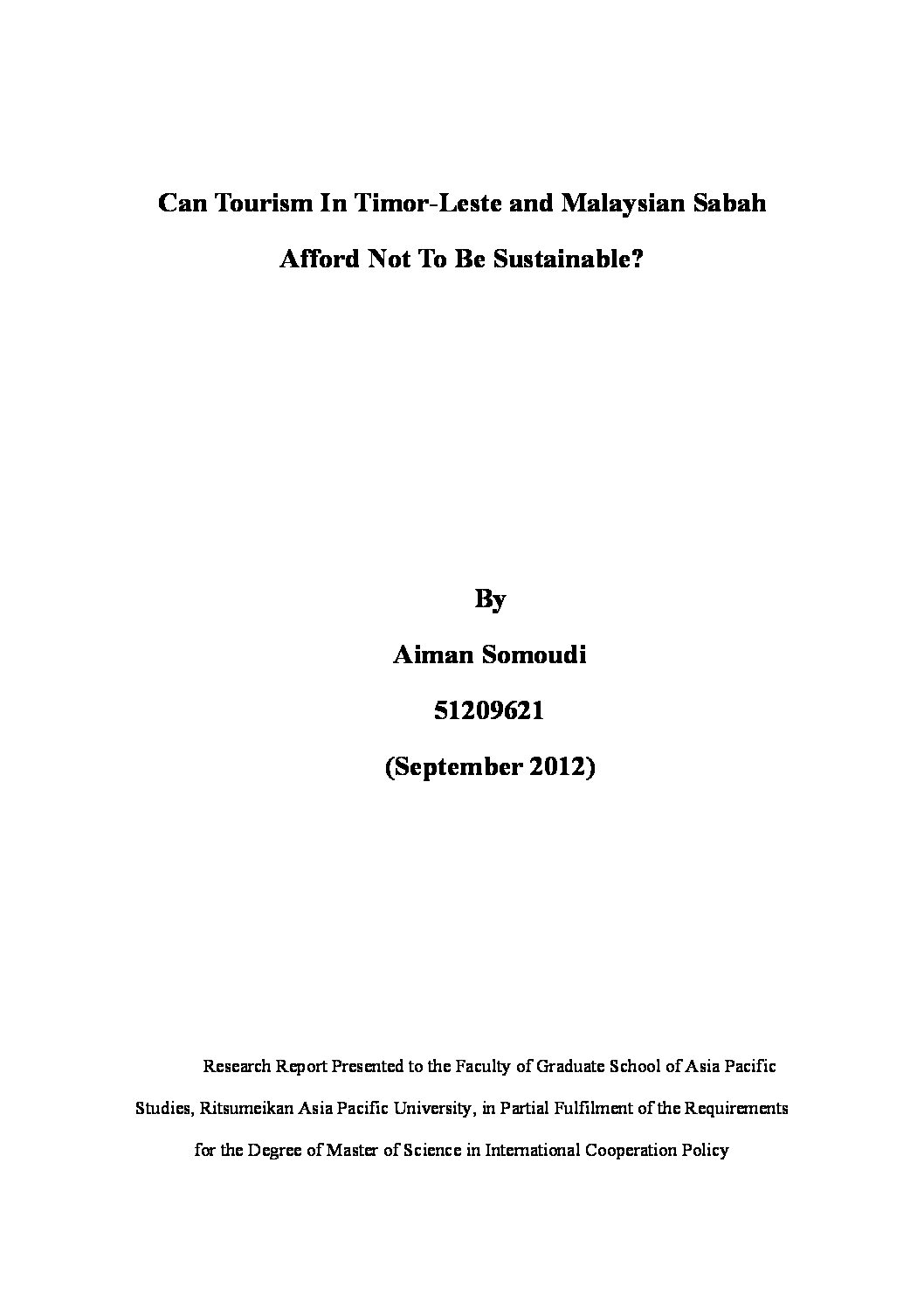Can tourism in TL & Malaysian Sabah afford not to be sustainable<\/h2> [if 148 not_equal=\”\”][\/if 148][if 149 not_equal=\”\”] -\u00a0[\/if 149]<\/p> [if 103 not_equal=\”\”]
This paper
[\/if 103]<\/p>
[if 143 not_equal=\”\”]Year:<\/strong> 2012[\/if 143]
[if 144 not_equal=\”\”]Author<\/strong>: Aiman Somoudi[\/if 144]
[if 160 not_equal=\”\”]Organisation\/s:<\/strong>Unknown[\/if 160]<\/p>
[if 164 not_equal=\”\”]Language:<\/strong> English[\/if 164]<\/p>“},{“box”:2,”content”:”
[su_photo_panel url=\”https://www.timorleste.tl/wp-content/uploads/formidable/4/Somoudi-2012_can-tourism-in-TL-Malaysian-Sabah-afford-not-to-be-sustainable_Thesis.pdf\”]Download[\/su_photo_panel]<\/p> [su_photo_panel shadow=\”0px 1px 2px #eeeeee\” photo=\”https://www.timorleste.tl/wp-content/uploads/formidable/4/Somoudi-2012_can-tourism-in-TL-Malaysian-Sabah-afford-not-to-be-sustainable_Thesis.pdf\” url=\”https://www.timorleste.tl/wp-content/uploads/formidable/4/Somoudi-2012_can-tourism-in-TL-Malaysian-Sabah-afford-not-to-be-sustainable_Thesis.pdf\”]Download[\/su_photo_panel]<\/p>“}]








